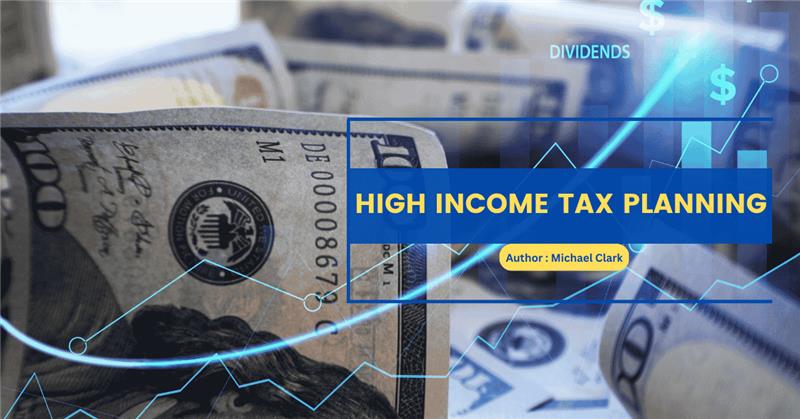
High-Income Tax Planning Strategies
High-income tax planning uses legal strategies to reduce your tax bill, protect your wealth, and maximize long-term financial growth. If you earn a high salary, own a business, or have large investments, tax planning is essential because without it, you could be paying far more in taxes than necessary.
What Is High-Income Tax Planning?
High-income tax planning is the process of organizing your income, investments, business structure, and deductions in a way that legally reduces your tax liability.
It includes strategies like:
-
Maximizing retirement contributions
-
Structuring investments for lower taxes
-
Reducing capital gains
-
Using charitable giving strategically
-
Deferring income
-
Taking advantage of business deductions
-
Estate and trust planning
Check here: Excellence CPA prices in Tampa, FL, USA
How High-Income Earners Reduce Taxes
A surgeon earning $450,000 can:
-
Max out a 401(k)
-
Use a backdoor Roth
-
Set up a defined benefit plan
-
Donate through a donor-advised fund
-
Harvest investment losses
-
Claim depreciation through rental real estate
-
Use an S-Corp for additional savings
These strategies combined can save $25,000–$80,000 per year in taxes.
Who Needs High-Income Tax Planning?
High-income tax planning is crucial if you are:
-
A business owner or partner
-
A high-earning W-2 employee
-
An investor with large capital gains
-
A real-estate owner
-
A medical, legal, or tech professional
-
Someone with multiple income streams
-
Someone expecting a large bonus, IPO shares, or inheritance
Top High-Income Tax Planning Strategies
Below are the most effective strategies for six-figure and seven-figure earners.
1. Maximize Retirement Contributions
High-income earners can reduce taxable income significantly through:
-
401(k) max contributions
-
Traditional IRA (if eligible)
-
Backdoor Roth IRA (for high earners)
-
Mega Backdoor Roth
-
Deferred compensation plans
-
Defined benefit or cash-balance plans
You reduce taxable income today, and your investments grow tax-advantaged for years.
Know about: How to file your taxes?
2. Use Charitable Giving as a Tax Strategy
Charity reduces taxes when done strategically.
Effective methods:
-
Donor-Advised Funds (DAFs)
-
Bunching donations into one tax year
-
Gifting appreciated stocks instead of cash
-
Qualified charitable distributions (if over age 70½)
High-income earners can deduct up to 60% of AGI in charitable contributions.
3. Tax-Loss Harvesting for Investors
Sell losing investments to offset:
-
Capital gains
-
Up to $3,000 of ordinary income
-
Future taxable gains
This strategy is extremely valuable for high-income investors facing higher capital gains rates.
4. Understand Your Tax Bracket and Marginal Rates
High-income earners often fall into the 32%–37% brackets. Every new dollar is taxed at your marginal rate so planning income timing, bonuses, and capital gains is essential.
5. Credits & Deductions Still Available to High-Income Earners
Even high earners may qualify for:
Child & Dependent Care Credit (partial)
Energy-efficient home improvement credits
-
Solar panels
-
Heat pumps
-
Geothermal systems
These reduce your tax liability directly.
6. Minimize Capital Gains Tax
Hold investments long-term
Long-term gains (15–20%) are taxed much lower than short-term gains (up to 37%).
Invest in Qualified Opportunity Zones
-
Defer current capital gains
-
Pay $0 tax on new appreciation after 10 years
Use tax-efficient funds:
-
Indexed ETFs
-
Municipal bonds
-
Tax-managed funds
7. Roth Conversions for Future Tax-Free Growth
A Roth conversion lets you move pre-tax retirement funds into a Roth IRA. You pay tax now, but future withdrawals are 100% tax-free.
This is ideal if:
-
You expect higher future tax rates
-
You want tax-free retirement income
-
You have large traditional IRA balances
8. Estate Planning for High-Income Earners
High-income individuals must plan for estate taxes or risk losing a large portion of wealth.
Key estate strategies:
-
Gifting assets annually
-
Irrevocable trusts
-
Grantor retained annuity trusts (GRATs)
-
Family limited partnerships (FLPs)
-
Charitable remainder trusts (CRTs)
These reduce the size of your taxable estate and protect generational wealth.
9. Business Tax Strategies for High-Income Earners
If you own a business, you have additional opportunities:
Section 199A (20% Pass-Through Deduction)
For S-Corps, partnerships, sole proprietors.
Bonus Depreciation & Section 179
Write off equipment, vehicles, and machinery faster.
Health Savings Accounts (HSAs)
Triple-tax advantage:
-
Deductible contributions
-
Tax-free growth
-
Tax-free withdrawals for medical expenses
Accountable Plans
Reimburse business expenses tax-free.
Common High-Income Tax Planning Mistakes
Avoid these costly errors:
-
Waiting until tax season to plan
-
Not using retirement accounts fully
-
Holding investments short-term
-
Missing charitable planning opportunities
-
Using the wrong business structure
-
Not considering estate taxes
-
Ignoring tax-efficient investing
A small mistake for a high-income earner can cost thousands.
When Should High-Income Earners Start Tax Planning?
The best results happen when planning starts early in the year not during April.
Key times to review your plan:
-
Beginning of the tax year
-
Before receiving a bonus
-
Before selling investments or property
-
Before year-end
Conclusion
High-income tax planning isn’t optional it’s essential. With the right strategies, you can reduce your tax bill whether you’re a business owner, investor, or high-earning professional, strategic planning ensures you keep more of what you earn.
If you’re ready to optimize your taxes, We are here to help with a customized, year-round strategy built for high-income individuals. Book a free consultation.
FAQs
What income level is considered high-income for tax planning?
Usually income that falls into the 32%–37% federal tax brackets.
Do high-income earners lose certain tax credits?
Yes, many credits phase out as income rises.
Can high earners still benefit from itemizing?
Yes, especially if mortgage interest, taxes, or donations exceed the standard deduction.
Do high-income taxpayers owe extra Medicare tax?
Yes, the Additional 0.9% Medicare Tax applies above certain thresholds.
Can real estate reduce taxes for high earners?
Yes, through depreciation, deductions, and cost segregation.
Do high earners pay quarterly taxes?
Often yes, especially if income comes from business or investments.
Follow SKFinancial on Facebook / Twitter / Linkedin / Youtube for updates.














